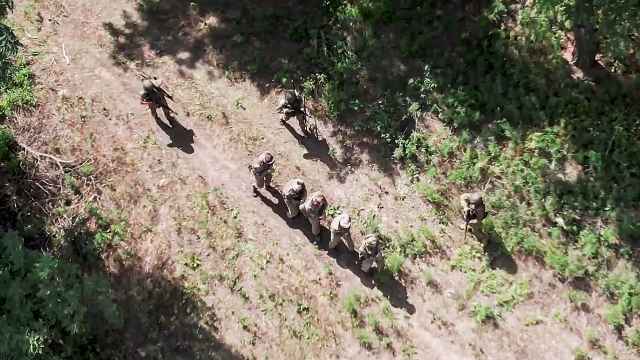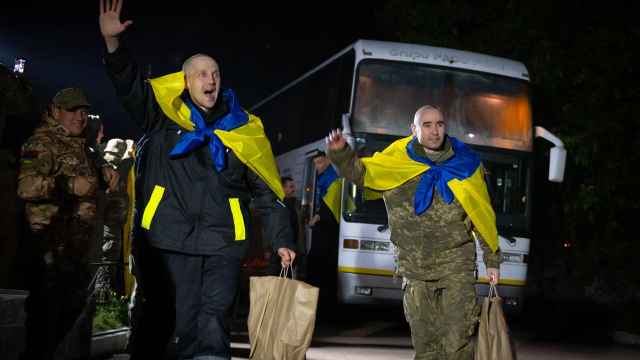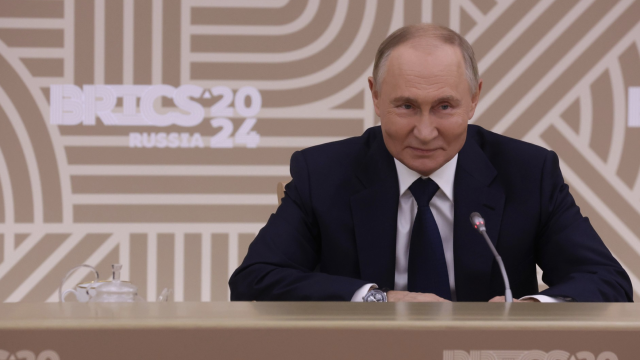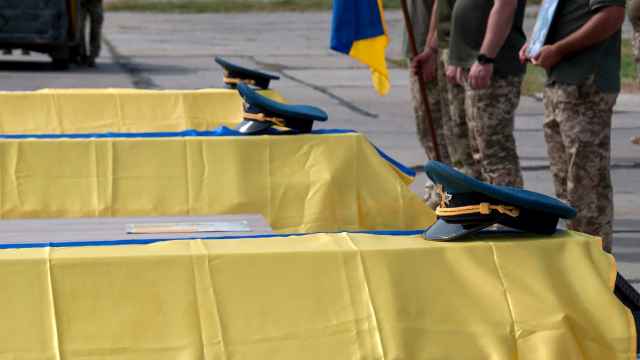As Orthodox Easter approached, Russian President Vladimir Putin made a familiar move: calling for a ceasefire in Ukraine. On the surface, this might seem like a gesture of goodwill — a nod to tradition, peace and religious observance.
However, beneath that veneer lies a calculated attempt to manipulate the international narrative, particularly targeting U.S. President Donald Trump and his administration.
This Easter ceasefire is not a deviation from Russia’s strategy, but a continuation.
Russia has previously announced temporary truces around Christmas and during other Orthodox holy days. These gestures, however, have never been honored. Neither side observed the Christmas truce promoted by Putin around the Orthodox holiday in 2023, which Ukrainian authorities at the time labelled a "cynical trap.”
The so-called energy infrastructure ceasefire promoted by U.S. President Donald Trump in recent months was repeatedly broken by Russian missile and drone strikes. In the weeks after it started, Russia pulled out of the agreement.
As we have seen in the past, Ukrainian cities remained under fire even as Russian diplomats declared temporary peace. President Volodymyr Zelensky accused Moscow of committing 3,000 ceasefire violations this weekend alone.
This pattern suggests something deeper: Russia is not attempting to end the war, but to reframe it in political terms, particularly for foreign audiences. Ceasefires are being weaponized as tools of disinformation, not diplomacy. They are not designed to help Ukrainian civilians or promote humanitarian goodwill, but to cast Ukraine as the intransigent actor unwilling to accept peace.
This is where the Easter ceasefire fits in. It is a message. Not to Ukraine, but to Trump and the U.S. political establishment.
Since Trump’s return to the White House, Putin’s messaging has been more pointed than ever. The Russian president is offering a ceasefire not as a sincere attempt to de-escalate, but as a strategic gesture — a performance meant to show that Russia is the “reasonable” actor, willing to negotiate, while Ukraine is the one prolonging the conflict. This comes only days after Secretary of State Marco Rubio announced that the U.S. would withdraw from the peace process if progress is not made quickly.
The implication is clear: If Ukraine continues fighting during a declared ceasefire, Russia will claim that Kyiv — and by extension, its Western backers — are the ones obstructing peace. This is classic Kremlin disinformation, aimed at sowing doubt and division within the U.S. government and American public opinion.
Putin is not seeking peace. Rather, he is buying himself time on the battlefield by signalling to Washington that he is prepared for peace.
Every Russian ceasefire attempt has served a tactical function: to buy time, rearm and consolidate positions. Military analysts and Ukrainian forces alike know that these pauses are not signs of de-escalation — they are operational breathing space, intended to prepare for the next wave of aggression.
In the roughly 24 hours after Putin’s Easter truce was declared, battles continued to rage as normal along much of the frontline. While there were reports of less artillery fire in the Donbas region, there has been little to no change in the intensity of warfare in the Russian regions of Kursk and Belgorod, or the Ukrainian regions of Kharkiv and Zaporizhzhia. One source from Kherson wrote that on the evening of the ceasefire, several buildings in the city were on fire due to drone attacks, claiming nothing had changed.
More importantly, however, beyond the battlefield, Putin’s ceasefire is aimed squarely at the West. The Kremlin knows the political pressures facing the Trump administration. By portraying itself as open to compromise, Moscow is offering political cover for those in Washington who want to disengage.
After all, in the eyes of Trump, if Russia is offering a ceasefire and Ukraine refuses, or violates it, why should the U.S. keep spending billions of dollars on weapons support?
It is a carefully designed trap — and the kind of narrative war the Kremlin excels at. Moscow already has Trump’s ear, with Steve Witkoff shuttling between Washington and Moscow, sharing Putin’s vision of a peace with Trump that does not take into consideration Ukrainian concerns or sovereignty. Through this Easter Truce, Putin is effectively buying time via disingenuous goodwill.
Meanwhile, Ukrainian officials have long understood the dangers of unilateral or insincere ceasefires. Every pause declared by Moscow has been followed by renewed violence, greater destruction, and deeper cynicism.
Should Ukraine abide by the ceasefire, for example, it would allow Russia to bring more firepower to the contact line without having to worry about the threat of drones. For Ukraine, accepting a Russian-declared ceasefire is not only dangerous, but often suicidal. Yet if Ukraine does not cease its defensive actions, the country appears to be opposed to peace in the eyes of the U.S. administration.
Most concerning now, however, is the risk that Washington falls for the trap.
Ukraine cannot defend itself without continued international support, especially from the U.S. Disunity within the European Union will make it difficult to replace the U.S. in terms of weapons and humanitarian support. If Trump misreads Putin’s gesture as genuine, or allows it to justify a rollback of American aid, the consequences will be catastrophic for Ukraine.
This Easter ceasefire is not about protecting life. It is about prolonging the war on Russian terms. It is about giving Putin the space and the story he needs to shift the narrative and win the political battle in Washington.
True peace in Ukraine will not come through temporary gestures or public relations stunts. It will come through the defeat of Russian aggression, the restoration of Ukrainian sovereignty and the realization that war, when disguised as peace, is still war.
Trump should see this ceasefire for what it is: a trap. Let us hope he does not walk into it.
A Message from The Moscow Times:
Dear readers,
We are facing unprecedented challenges. Russia's Prosecutor General's Office has designated The Moscow Times as an "undesirable" organization, criminalizing our work and putting our staff at risk of prosecution. This follows our earlier unjust labeling as a "foreign agent."
These actions are direct attempts to silence independent journalism in Russia. The authorities claim our work "discredits the decisions of the Russian leadership." We see things differently: we strive to provide accurate, unbiased reporting on Russia.
We, the journalists of The Moscow Times, refuse to be silenced. But to continue our work, we need your help.
Your support, no matter how small, makes a world of difference. If you can, please support us monthly starting from just $2. It's quick to set up, and every contribution makes a significant impact.
By supporting The Moscow Times, you're defending open, independent journalism in the face of repression. Thank you for standing with us.
Remind me later.








